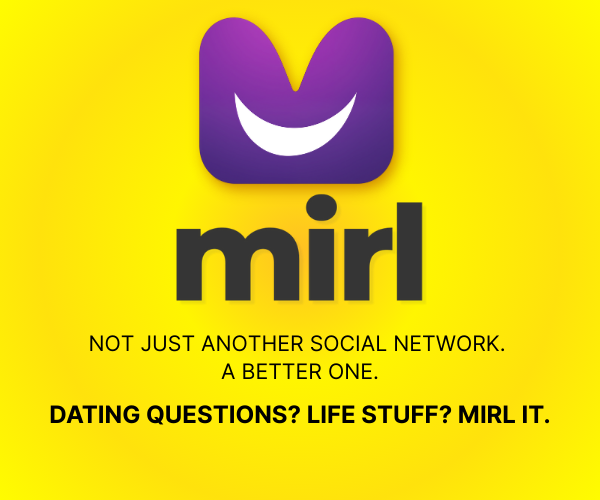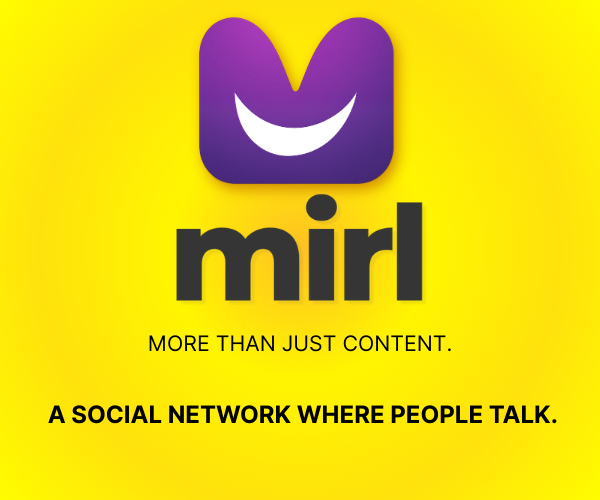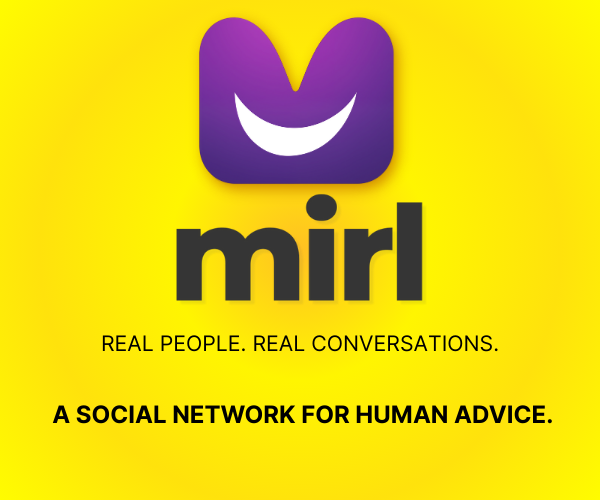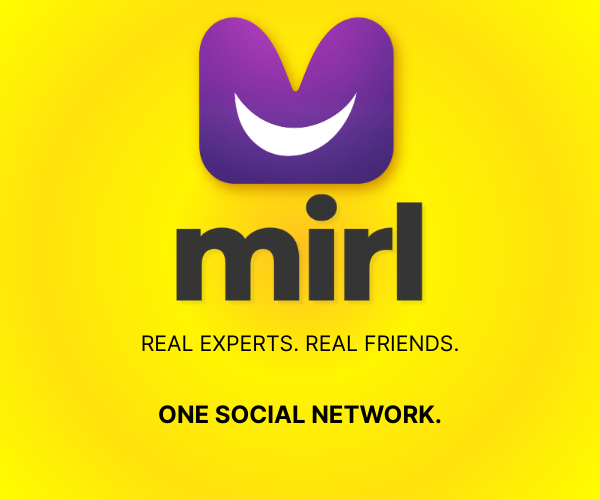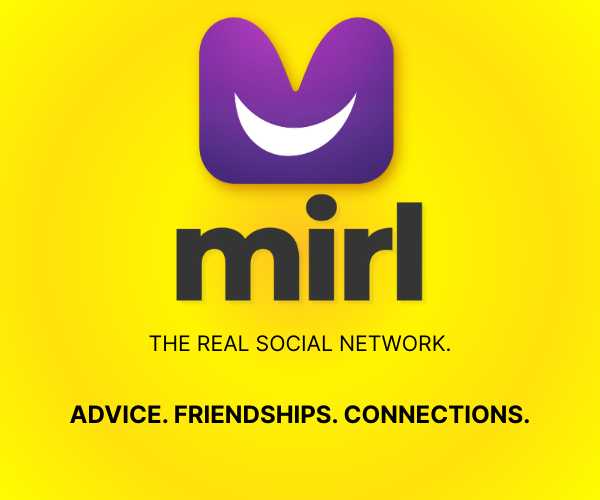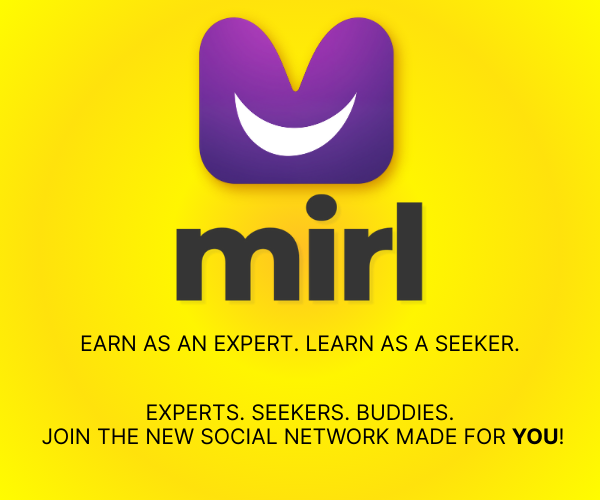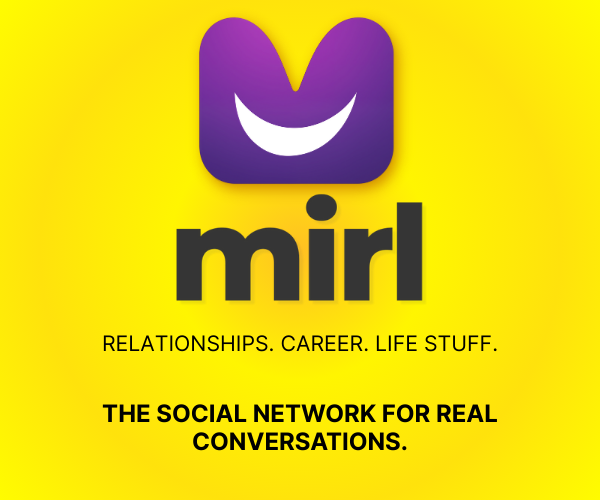What Is a Relationship? 6 Big Types & 26 Must-Knows No One Talks About

Remember the first time someone called you their “partner” and you had no idea if they meant relationship partner or lab partner? Yeah. We’ve all been there. And that’s why understand what is a relationship can be so confusing.
Whether it’s changing a relationship status, getting butterflies over a Snapchat streak, or lying in bed wondering if texting every night means you’re dating or just… emotionally entangled, relationships can feel confusing, especially when you’re new to them.
[Read: Snapchat Streak: What It Means, 22 Snapstreak Rules & Must-Know Emojis]
You might be a teenager wondering if your first crush is the real deal. Or a college student who just realized you’ve been in a situationship for six months without a DTR talk. Either way, you’re not alone.
Let’s break down what a relationship really means, no psych degree required, just a little curiosity and an open heart.
What Is a Relationship, Really?
At its core, a relationship is any connection between two people, emotional, romantic, platonic, or even familial. But if you’re reading this, chances are you’re not asking about your cousin Becky or your childhood pet turtle.
You’re asking: Is this a real relationship? Does this count? What even defines a relationship anymore?
Here’s the real talk:
A relationship is an ongoing emotional connection between people, where mutual affection, respect, and (ideally) trust exist. It can be romantic, but it doesn’t have to be. The key word? Connection. [Read: Emotional Connection: 38 Signs, Secrets & Ways to Build a Real Bond]
Psychologists often define relationships based on how people interact over time, this includes shared experiences, emotional intimacy, communication, and support. The stronger those factors, the stronger the bond.
The Big Six Relationship Types
1. Romantic/Dating Relationships
This one’s obvious, but also the most complicated. A romantic relationship involves emotional intimacy, physical attraction, and (hopefully) mutual commitment. But in today’s world, it’s rarely that simple.
Modern love languages include memes, Spotify playlists, and sending each other TikToks until 3 a.m. But underneath it all, romantic relationships require trust, effort, and mutual vulnerability.
2. Situationships
Somewhere between dating and ghosting lies the murky territory of situationships. These are undefined, casual, emotionally charged connections that often lack clarity. [Read: Situationship: Why People Like It, 51 Signs, Rules & Ways to Tell If It’s For You]
If you’ve ever asked, “So what are we?” and got a shrug, you’re likely in one.
3. Platonic Friendships
These are the ride-or-die bonds that don’t involve romance but can be just as emotionally intense. Think sleepovers, shared trauma (like gym class), and late-night vent sessions.
4. Online-Only Relationships
Snapchat besties. Discord crushes. TikTok comment flirtations. Welcome to Gen Z’s favorite long-distance setups. These can feel very real, even if you’ve never met IRL. [Read: Long Distance Crush: The Best Ways to Deal with Your Far Away Feelings]
5. Family Relationships
Sometimes the most complicated of all. These connections shape how we attach, love, and even argue. Parents, siblings, guardians, they set the stage for how we experience closeness and conflict.
6. Relationship with Yourself
Cheesy but true: this might be the most important one. Self-respect, self-talk, and your own emotional regulation play a huge role in how you relate to others.
Why Your Brain Actually Needs Relationships
If you’ve ever felt like your crush ghosting you hurt more than stubbing your toe on a coffee table, you’re not being dramatic, your brain literally registers social pain the same way it does physical pain. Thanks, evolution!
Our brains are wired for connection. According to social neuroscience, areas like the anterior cingulate cortex (the pain center) light up when we feel rejected or excluded. Humans are biologically built for attachment, it’s how we survived as a species.
Psychologist Erik Erikson even dedicated an entire stage of development to this: “Intimacy vs. Isolation,” which is all about forming close bonds in young adulthood. Translation? Feeling connected isn’t optional, it’s a psychological milestone.
Plus, relationships help us practice emotional regulation, communication, empathy, and even our sense of self. Romantic or not, every healthy connection is like a little mirror that helps us understand who we are.
[Read: Sense of Self: What It Is, 36 Signs, Tips & Steps to Raise It and Feel Great]
Healthy vs. Unhealthy: The Relationship Spectrum
Not all relationships are created equal. Some feel like warm hugs in human form. Others? More like walking on eggshells with a side of anxiety.
Here’s how to know where your connection sits on the relationship spectrum:
1. Healthy Relationships
– You feel safe being your true self (yes, even your weird snack combos and ugly cry face)
– Boundaries are respected, like if you need space, they don’t take it personally
– You talk with each other, not at each other
– You can be apart without feeling insecure or anxious
– There’s mutual support: their wins feel like your wins, and vice versa
[Read: How to Tell Someone You Don’t Like Them: 13 Methods of Rejection]
Psychologists call this secure attachment, a style where partners feel emotionally safe, consistent, and supportive.
📚 Source: Bowlby, J. (1988). A Secure Base: Clinical Applications of Attachment Theory.
2. Unhealthy Relationships
– Guilt-tripping, jealousy, or emotional manipulation is the norm
– You walk on eggshells to avoid triggering drama
– One person controls or pressures the other (like demanding phone passwords or 24/7 location sharing)
– Gaslighting: they make you question your feelings or memory of events
– Breakups and makeups feel like a toxic loop
These dynamics are often signs of insecure attachment or learned patterns from early relationships. [Read: Insecure Attachment: What It Is, Types, 23 Signs & How It Affects Your Life]
📚 Source: Mikulincer, M. & Shaver, P.R. (2007). Attachment in Adulthood: Structure, Dynamics, and Change.
3. Somewhere in Between?
Let’s be real: most relationships have their moments. One fight doesn’t make it toxic, and one sweet gesture doesn’t make it healthy. The key is to look at patterns, not isolated events.
Ask yourself: Is this relationship helping me grow, or is it slowly chipping away at my self-worth?
Modern Relationship 101: What No One Warned You About
Welcome to the wild, weird, sometimes wonderful world of modern dating, where asking “Wanna hang out?” is somehow scarier than being chased by a bear, and ghosting is just a part of the landscape.
1. The Talking Stage (a.k.a. Relationship Limbo)
This is where you text every day, maybe flirt a little, possibly even hold hands, but no one knows if you’re actually dating. You talk, vibe, and maybe trauma-dump at 2 a.m., but neither of you wants to DTR (Define The Relationship).
[Read: 37 Reasons, Signs & Must-Know Rules When a Guy Stops Texting You Often]
It’s like playing Sims with your emotions. Real effort, zero labels.
2. Ghosting, Breadcrumbing & Orbiting
Modern dating has its own horror movie villains:
Ghosting: They disappear like your WiFi in a thunderstorm. One day you’re FaceTiming, the next, radio silence.
Breadcrumbing: They drop just enough flirty texts to keep you hooked, but never commit. Think Hansel & Gretel but emotionally confusing.
Orbiting: They stop talking to you but still watch all your stories and like your posts. Haunting, but make it digital.
These patterns can seriously mess with your self-worth. It’s not about you being “too much” or “not enough”, sometimes people just lack emotional maturity or clarity. [Read: 20 Signs of Emotional Maturity & Traits that Reveal a Mature Mind]
3. Swiping Fatigue Is Real
Tinder. Bumble. Hinge. It’s like Pokémon but with more disappointment and fewer fireballs. After a while, all the bios blur together (“Dog lover, foodie, gym rat, 6’1 because apparently that matters”).
Psychologically, this constant browsing can create what’s known as the paradox of choice, where having too many options actually makes us more anxious and less satisfied with any one choice.
📚 Source: Schwartz, B. (2004). The Paradox of Choice: Why More Is Less.
4. Emotional Availability Matters
You can’t build a secure bond with someone who treats their feelings like Voldemort, “That which must not be named.” [Read: Loving Someone You Can’t Have: 15 Ways to Accept Unreciprocated Love]
Being emotionally available means they can communicate their thoughts, acknowledge yours, and hold space for both of you, without disappearing into the void every time you ask, “What are we?”
Building (and Keeping) a Healthy Romantic Relationship
Let’s say you’ve made it past the texting, swiping, and ghost-dodging, now what?
A real relationship isn’t just the cute Instagram posts or the good morning texts. It’s the awkward convos, the shared silence, the compromise when one of you wants Thai food and the other’s dreaming of tacos. [Read: 63 Cute Good Morning Texts that Work Like Magic to Make Them Smile]
Here’s how to keep it real, and healthy:
1. Learn Each Other’s Love Languages
Some people need words. Others need hugs. And some just want you to bring them fries without asking. Knowing how your partner gives and receives love can save a lot of miscommunication and hurt feelings.
📚 Source: Chapman, G. (1992). The Five Love Languages.
2. Don’t Skip the Hard Conversations
“Where is this going?” “What are your boundaries?” “Are we exclusive?”
These convos are like flossing, uncomfortable but necessary. Avoiding them might feel easier, but it builds resentment and confusion.
3. Keep Your Identity Intact
Being in love doesn’t mean becoming someone’s emotional support peacock. Keep doing your own thing, seeing your friends, and pursuing your passions. Interdependence > codependence. [Read: 16 True Signs & Ways to Tell If Someone Doesn’t Want to Be Your Friend]
4. Handle Conflict Like a Team, Not Opponents
Disagreements are normal. What matters is how you fight. Do you listen? Do you scream-type in all caps? Do you take a break and come back when calmer?
Healthy couples fight for the relationship, not to “win.”
5. Don’t Rely on the Honeymoon Phase
That first month where everything’s magical? Amazing. But real love is what happens after the butterflies. When the shine fades, consistency and respect should still stay.
First-Love Survival Guide
Ah, first love. It hits like a rom-com montage but feels more like a rollercoaster that forgot its brakes. When it’s good, it’s euphoric. When it ends, it’s like your favorite comfort show got cancelled mid-season.
But here’s the good news: first love isn’t just about the butterflies. It’s about the blueprint it leaves behind. And trust me, you’ll learn more from one heartbreak than a dozen self-help books.
1. Feel All the Feels (No Shame)
Crying over a playlist? Totally normal. Staring at your phone like it holds the secrets of the universe? We’ve all been there. First love pulls emotions to the surface like a Disney finale.
Give yourself space to feel without judgment. Heartbreak is valid pain, not something to “get over” overnight.
2. Don’t Turn Your Pain Into Proof You’re Unlovable
It’s tempting to spiral into, “What did I do wrong?” But often, love ends not because you’re broken, but because you’re growing. You’re figuring out what you want, how you communicate, and where your boundaries are.
3. Block, Mute, or Journal, Whatever Helps You Heal
There’s no one-size-fits-all breakup survival kit. Some people journal. Some block their ex on everything and start baking cookies at midnight. You do you. Just make sure you’re moving forward, even if it’s baby steps. [Read: Why Do People Break Up Even If They’re Still in Love?]
4. Learn the Lessons, But Don’t Build Walls
Yes, love hurt you once. But don’t let that be your reason to avoid it forever. First love isn’t supposed to be perfect, it’s your intro class, not the final exam.
Take the lessons, but don’t close yourself off from future connection.
5. Know That This Isn’t the End of the Story
It feels like the whole world is collapsing, but heartbreak is the start of emotional resilience. Your next relationship will be stronger, wiser, and more aligned with who you are becoming.
Skill-Builders You Can Start Today to Be Ready for Relationships
Great relationships don’t just happen. They’re built, like IKEA furniture, but hopefully with fewer leftover screws and way more emotional clarity. [Read: 15 Excuses & Nice Ways to Tell a Guy You’re Not Interested & Don’t Like Him]
These are simple, science-backed skills that strengthen your relationship muscles before, during, or after love.
1. The 2-Minute Emotional Check-In
Every day, ask yourself: “What am I feeling right now, and why?”
Sounds cheesy, but this trains emotional awareness, which is crucial in relationships. If you can name your feelings, you’re already ahead of most people who just say, “I’m fine” while internally panicking.
2. Practice Setting Boundaries
Try saying “No” without overexplaining.
Try, “I’m not comfortable with that.”
Try, “Let me think about it first.”
Healthy boundaries are attractive. They show self-respect, not selfishness.
📚 Source: Cloud, H. & Townsend, J. (1992). Boundaries: When to Say Yes, How to Say No.
[Read: How to Say No: 15 Ways to Reason Politely, Stop Pleasing & Feel Kickass]
3. Journal Your Relationship History
Write about your past crushes, friendships, and fallouts. What patterns do you notice? What did each one teach you?
This helps spot red flags before you’re six months into another replay of your last emotional plot twist.
4. Self-Soothing Techniques
Deep breathing. Walking. Making a feel-good playlist. Venting to a friend instead of rage-texting.
The more you can regulate your emotions, the less likely you are to blow up during tough moments, or say something you’ll regret.
5. Say It With Words
Tell a friend you love them. Tell your partner you’re proud of them. Tell yourself, “I’m doing okay.”
Communicating affection builds secure bonds, and guess what? Vulnerability is magnetic.
When to Ask for Backup When You’re in a Relationship
Even the best relationships hit roadblocks. And sometimes, the healthiest thing you can do is raise your hand and say, “Hey, I need a little help here.”
Asking for support isn’t weakness, it’s wisdom. You don’t need to have it all figured out. Relationships are messy, emotional, and incredibly human. [Read: I Don’t Need a Man: Convincing Reasons Why You Don’t Need One!]
1. You Feel Drained or Unsafe
If your relationship constantly leaves you anxious, exhausted, or scared, it’s time to reach out. A trusted adult, school counselor, or therapist can help you sort through what’s really going on.
2. You’re Stuck in a Cycle
Break up, make up, repeat. If you’ve had the same fight for the 83rd time or keep ending up in the same kind of confusing situationships, a little outside perspective can make a huge difference.
3. You’re Losing Yourself
When you can’t recognize who you are anymore, or you’ve put your needs on mute for too long, that’s a signal. You deserve to be in a relationship that honors both of you.
4. A Friend Needs Help
Maybe it’s not you, but your best friend who’s spiraling. You can support them, but you’re not their therapist. Encourage them to talk to a trusted adult, hotline, or mental health pro.
Here are a few resources:
National Teen Dating Abuse Helpline: 1-866-331-9474 or text “LOVEIS” to 22522
Crisis Text Line: Text HOME to 741741
Local school counselor or teen health clinic
So What is a Relationship, All Said and Done?
So, what is a relationship? It’s not a label, or a status, or how many hearts they put in their texts. It’s how you feel when you’re around someone. It’s the care you give and get back. It’s the trust, the safety, the inside jokes, and the growth you experience together.
[Read: 29 Secrets to Get Someone to Text You First & the BIG Mistakes to Avoid!]
Whether you’re loving someone else or learning to love yourself, one thing’s for sure, you’re doing better than you think. And if you ever doubt it, this guide (and we) have got your back.
So the next time someone asks, “What is a relationship really?” you’ll know what to say, and maybe, just maybe, you’ll say it with confidence. You’ve got this. ❤️

